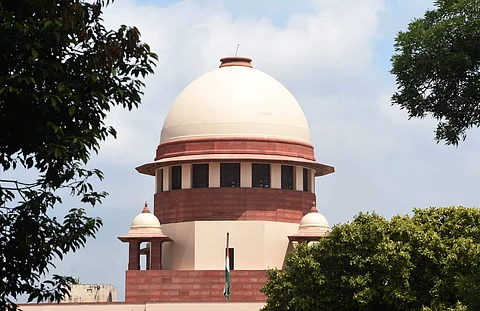

The Supreme Court on Saturday, October 15 suspended the October 14 order of the Bombay High Court discharging former Delhi University professor GN Saibaba and five others in an alleged Maoist links case.
A bench comprising Justices MR Shah and Bela M Trivedi suspended the high court's judgment, as stated in a report by IANS.
The Maharashtra government had moved the apex court questioning the validity of the Bombay High Court's judgment discharging Saibaba and the five others in the case of having links with banned Maoists organisations due to absence of sanction.
"The High Court has erred in not considering the fact that the point of sanction was neither raised nor argued before the trial court and yet the trial court had rightly concluded the said point against the accused holding that there was no substantial failure of justice," said the state government, as per IANS.
During the hearing, the top court noted that the accused were convicted after detailed appreciation of evidence and offences were serious. If the state government succeeds on merits, offences are very serious against the interest of the society, it said.
The apex court also issued a notice in the matter. Senior advocate R Basant represented Saibaba before the apex court.
Why was he convicted?
In March 2017, a sessions court in Maharashtra's Gadchiroli district convicted Saibaba and others, including a journalist and a Jawaharlal Nehru University (JNU) student, for their alleged Maoist links and indulging in activities amounting to waging war against the country.
The court had held Saibaba and the others guilty under various provisions of the stringent Unlawful Activities (Prevention) Act (UAPA) and the Indian Penal Code (IPC).
Overturning the verdict, the high court noted that the trial court proceedings were "null and void" in the absence of a valid sanction under the UAPA and hence, its judgment was liable to be set aside and quashed.
